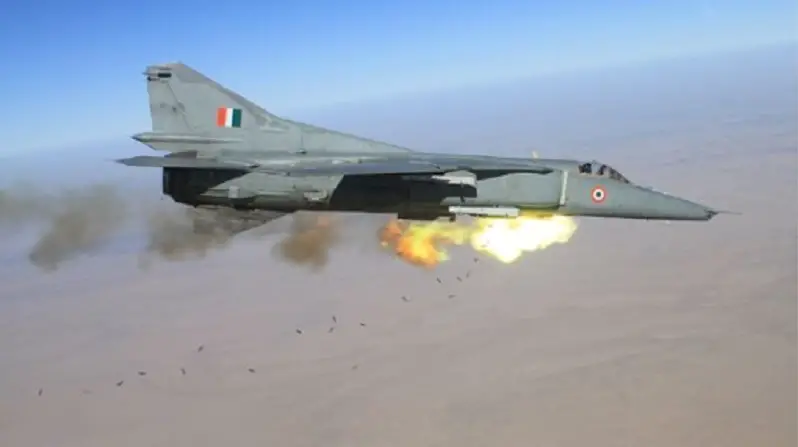The Indian Air Force (IAF) retired its last squadron of upgraded MiG-27ML ‘Flogger’ tactical ground-attack aircraft on 27 December: a move that further reduces the service’s overall combat strength. The MiG-27, has had an impeccable track record in its more than three decades of glorious service to the nation. The MiG-27ML ‘Flogger’ tactical ground-attack aircraft took to the skies one last time at the Jodhpur airbase where the only Indian Air Force squadron that operates the MiG 27 is based. The fleet earned its glory in the historic Kargil conflict when it delivered rockets & bombs with accuracy on enemy positions. The fleet also took active part in Op-Parakram.
Presently, Number 29 Squadron is the only unit in the IAF which has been operating MiG 27 Upgrades.Number 29 Squadron was raised on March 10, 1958, at Air Force Station Halwara with Ouragan (Toofani) aircraft. Over the years, the Squadron has been equipped with numerous types of fighter aircraft such as MiG 21 Type 77, MiG 21 Type 96, MiG 27 ML and MiG 27 Upgrade. The Squadron is now slated to be number plated on March 31, 2020, with December 27, 2019, being its last flying day thereby making the swing-wing fleet a part of Indian Air Force’s glorious past.
The Mikoyan MiG-27 (Flogger) is a variable-geometry ground-attack aircraft, originally built by the Mikoyan-Gurevich design bureau in the Soviet Union and later licence-produced in India by Hindustan Aeronautics as the Bahadur (“Valiant”). It is based on the Mikoyan-Gurevich MiG-23 fighter aircraft, but optimised for air-to-ground attack. Unlike the MiG-23, the MiG-27 did not have widespread use outside Russia, as most countries opted for the Mikoyan-Gurevich MiG-23BN and Sukhoi Su-22 instead. It remains in service with the Kazakh and Sri Lankan Air Forces in the ground attack role. All Russian, Indian and Ukrainian MiG-27s have been retired.
















